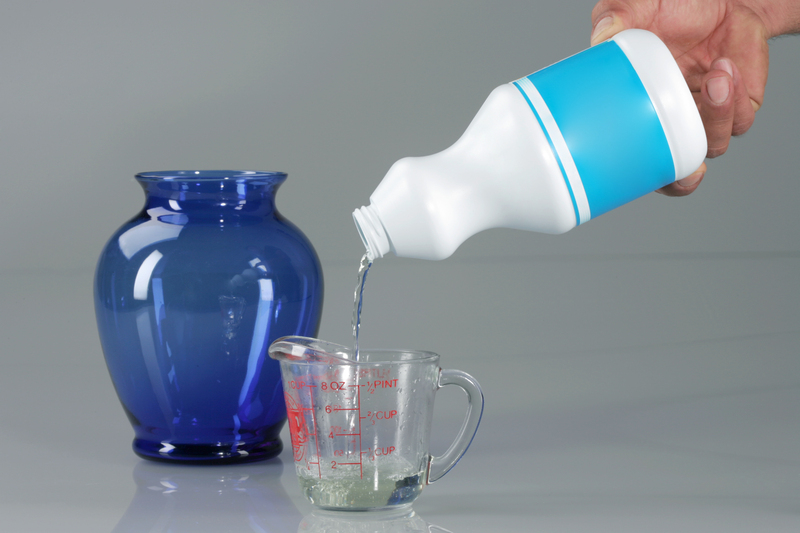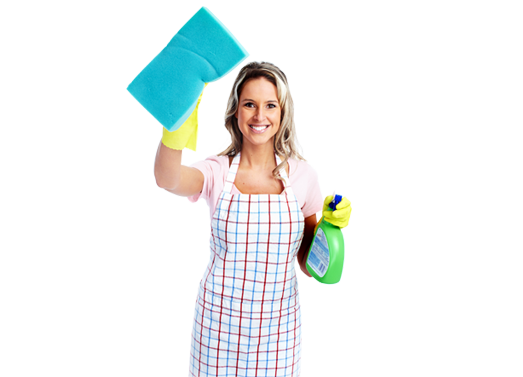Battle Pet Odors with These Top Tips
Posted on 13/08/2025
Battle Pet Odors with These Top Tips
If you're a pet parent, you already know the immense joy furry friends bring into your life. However, sometimes our beloved companions leave an unwelcome mark: persistent pet odors. While many pet owners have simply "learned to live with it," the good news is you do not have to sacrifice freshness at home to enjoy time with your pets. In this comprehensive guide, we'll share the top strategies to conquer pet odors, ensuring your home stays fresh, healthy, and inviting for both people and pets.
Understanding the Sources of Pet Odors
Before tackling pet smells, it's vital to understand where they're coming from. Most pet odors are a combination of:
- Natural oils: produced by your pet's skin and fur
- Saliva: especially from drool-prone breeds
- Urine and feces: accidents or litter trays
- Dander and hair: which can accumulate in carpets and upholstery
- Unwashed bedding and toys: which trap smells over time
- Lack of ventilation: that allows odors to linger instead of dissipate
Pet odor elimination starts with identifying and targeting these sources directly.

Top Tips to Battle Pet Odors and Keep Your Home Smelling Fresh
1. Regular Grooming is Key
One of the most effective pet odor solutions is routine grooming. Regular baths and brushing significantly reduce odor, dander, and excess fur. Choose a pet-safe shampoo appropriate for your pet's skin type. For dogs and cats especially, brushing distributes natural oils, removes loose fur, and prevents matting, which can trap odors.
- Bathe pets every 4-6 weeks (frequency may vary based on breed and activity)
- Use deodorizing sprays as an in-between solution
- Wipe paws after outdoor trips to avoid bringing odors inside
Tip: Never use human shampoo on pets as it can dry out their skin and worsen odors.
2. Clean Pet Bedding and Toys
Bedding, blankets, and toys can quickly become a hotspot for pet smells. Regularly launder everything your pet sleeps on or plays with:
- Wash all bedding and blankets weekly using a pet-safe detergent
- Spot treat toys with a vinegar-water solution to neutralize odors
- Avoid fabric softeners, which can trap smells deeper in fibers
Fresh bedding means a fresher-smelling pet and home.
3. Vacuum and Wash Floors Frequently
Piles of fur, dander, and dirt are major contributors to lingering pet odors. To combat pet odors on carpets and floors:
- Vacuum at least twice a week, focusing on corners, under furniture, and along baseboards
- Use a vacuum with a HEPA filter to trap tiny odor-causing particles
- Mop hard floors with an enzyme cleaner that degrades organic pet stains
- Sprinkle baking soda onto carpets, let sit for 15 minutes, then vacuum to naturally neutralize odor
Don't forget upholstery and curtains as hair and dander can settle there too. Many vacuum models now include pet-specific attachment tools, making it easier than ever to keep furniture fresh.
4. Address Accidents Immediately
Even the best-trained pets can have an accident. The key is swift action. The sooner you clean up, the less likely odors will linger or stains will set. Here's how:
- Blot up urine immediately (do not rub)
- Use an enzyme-based cleaner specifically designed for pet messes to break down odor-causing compounds
- Repeat cleaning until the smell is completely gone (your pet's nose is more sensitive than yours!)
Never use ammonia-based products on pet stains, as the scent can resemble urine and encourage repeat accidents.
5. Freshen the Air Naturally
An often-overlooked pet odor hack: keep the air in your home moving and clean. Stale air traps scents. Try these methods:
- Open windows regularly to increase air flow
- Use air purifiers with activated carbon or HEPA filters
- Consider a dehumidifier in damp areas, which can prevent musty odors and mold growth
- Add bowls of baking soda or activated charcoal in odor-prone zones, such as by litter boxes
Remember, synthetic air fresheners can mask odors temporarily but often fail to address the root cause. Natural air fresheners (like essential oil diffusers) may work, but always check they are safe for pets.
6. Maintain Litter Boxes and Potty Areas
If you own a cat--or a small animal with a litter area--daily cleaning is a must to fight pet odors:
- Scoop solids and clumps at least once daily
- Completely change litter and wash the box every 1-2 weeks
- Consider unscented, clumping litter for better odor trapping
- For dogs, keep potty pads fresh and pick up yard waste promptly
If you still smell lingering litter box odors after cleaning, try moving the box to a more ventilated space or upgrading to a high-sided or covered model that retains odors better.
7. Wash Collars, Leashes, and Pet Clothing
It's easy to forget, but pet accessories soak up scents too:
- Launder collars, harnesses, and sweaters every few weeks
- For leather, wipe down with a vinegar-dampened cloth
- Check that leashes are fully dry before storage to avoid mildew
A simple wash goes a long way to keep those "mystery smells" at bay!
8. Upgrade to Odor-Resistant Furnishings
If you're renovating or replacing items, consider pet-friendly and odor-resistant materials:
- Opt for washable slipcovers on couches and chairs
- Use area rugs instead of carpeting for easier cleaning
- Choose leather, faux leather, or tightly woven fabrics that resist absorbing odors
Investing in the right furnishings not only improves home aesthetics but can significantly reduce how quickly pet smells set in.
Natural Remedies for Pet Odor Elimination
If you prefer to avoid harsh chemicals, many homeowners have success using natural alternatives to eliminate pet odors:
- Baking soda: As mentioned above, it absorbs odors from carpets and fabrics
- White vinegar: Neutralizes smells and can be mixed with water as a spray (spot test first!)
- Lemon juice: A natural deodorizer and antifungal agent (dilute before use)
- Activated charcoal: Absorbs airborne odors when placed in open containers
These household staples are affordable, effective, and generally safe for pets and people alike.
When to Seek Veterinary Help
Some persistent pet odors may have an underlying health cause. Issues like bad breath, smelly ears, or chronic skin odors can indicate infection, allergies, or other conditions. If you notice:
- Sudden or severe change in your pet's odor
- Persistent skin or ear issues
- Bad breath that brushing doesn't fix
- Impacted anal glands (for dogs)
Consult your veterinarian promptly. Treating medical issues is often the most effective way to eliminate certain pet odors for good.

Top Products for Odor Control in Pet Households
While routine cleaning is foundational, some pet odor control products can make a huge difference in your home:
- Enzyme-based cleaners: Break down stain- and odor-causing proteins (great for urine, vomit, feces)
- HEPA air purifiers: Capture and neutralize airborne hair and dander
- Odor-eliminating sprays: These can instantly freshen fabrics, beds, and air (always choose pet-safe)
- Litter deodorizers: Powders or granules that extend the freshness of litter boxes
Research reviews and choose products designed for homes with pets for the best odor-fighting power.
Conclusion: Enjoy a Fresh, Healthy Home with Pets
Pet odor removal doesn't have to be a losing battle. With consistent cleaning routines, smart products, and a few DIY tricks, you can keep home smells under control and enjoy time with your pets worry-free. Remember:
- Groom pets and clean bedding regularly
- Address accidents quickly using enzyme-based solutions
- Vacuum, mop, and ventilate your home often
- Try natural deodorizers for ongoing freshness
Invest in your pet's hygiene, your home's cleanliness, and your own health by applying these tips. Battle pet odors effectively, and create a living space that's pleasant for two-legged and four-legged family members alike!
Frequently Asked Questions about Pet Odor Removal
- How do I remove dog urine smell from carpet?
- Blot the area quickly, then use an enzyme-based cleaner following product instructions. Avoid ammonia-based products and allow the area to dry thoroughly.
- Is baking soda safe for pets?
- Yes, baking soda is generally safe in small amounts as a deodorizer, but avoid letting pets ingest it directly or in large quantities.
- What's the best air purifier for pet households?
- Look for a HEPA filter rated for your room size and select options that include activated carbon for superior odor trapping.
- How often should I groom my pet to control odor?
- Most pets benefit from grooming every 4-6 weeks, but frequency depends on their coat, lifestyle, and breed.
Battling pet odors just takes the right combination of housecleaning habits, grooming routines, and strong products. Your nose--and your guests--will thank you!





